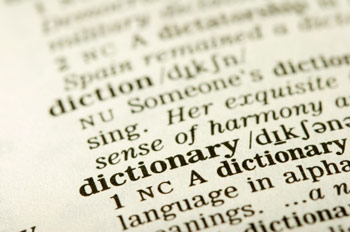Homophones can be confusing. Luckily, there’s an easy way to remember affect vs. effect.
I see it all the time: affect and effect mixed up as if they were completely interchangeable.
But they’re not.
These two homophones may sound exactly alike, but they don’t even belong to the same parts of speech!
If you’ve ever written one of these words and scrunched up your eyebrows wondering whether to spell it with an a or an e, then this grammar lesson is for you!
Affect vs. Effect
In the ongoing wars between homophones, affect vs. effect is one of the most brutal fights on the battlefield. One is usually a noun (but not always) and the other is usually a verb (but not always). So the war wages on, and in the meantime misspellings and typos run rampant whenever one of these two words appears in print.
To Affect
Affect is almost always a verb. It is something that happens. You are affected (by someone or something) or you affect (someone or something). This word is never preceded by an article such as an or the because it’s not a thing, it’s an action. When you’re writing, or speaking for that matter, and are unsure of the spelling, ask yourself if the word is being used as an action. If it is, then go with affect.
a = action
a = affect
An Effect
Effect is a noun, and that is a thing. It’s not something you do, it’s something you have or give or something that just is. We hear this word most commonly in reference to fancy film making — you know — special effects. “The special effects in that movie were groundbreaking!” Note the use of the article, the, as in the effect. See that? Easy!
the = article
effect = noun
If you are using effect as a noun, you can pair it with the: the effect
Also note that if used with an adjective (or noun phrase), it’s effect (with an e):
- After effect
- Special effect
- Greenhouse effect
- Sound effect
- Effects of alcohol
- In effect…
- Adverse effects
- Positive/negative effects
- Cause and effect
- Side effects
Notes for Consideration
Some people will pronounce these words different, but pronunciation is often indistinguishable. As with all things pertaining to writing and grammar, there are exceptions to every rule, including how these two homophones are used. This post covers the most common usage. Your mileage may vary.
More Homophones?
That’s all for today! Do you think the battle of affect vs. effect can be won? Will we eventually learn how to spell these two homophones correctly or will they someday merge into a single word?
If you have any tips or tricks for remembering how to spell affect vs. effect please share your knowledge. If you are stuck on any homophones, drop a comment. There’s a good chance your grammar question will be answered in the comments or in an upcoming post.






Good information. There are times, however, when affect is used as a noun and effect is used as a verb.
I found this post by an English teacher: (http://crofsblogs.typepad.com/english/2005/08/effect_as_a_ver.html)
He says:
“Affect” can be a noun meaning “display of emotion”: The killer displayed no affect when shown photos of his victims.
Also:
“effect” can be a verb meaning “to bring about,” “to cause,” or “to achieve”: He effected his escape with knotted bedsheets. You will effect these changes on Monday.
Generally, affect is a verb and effect is a noun, but there are times when they can be used the other way.
Effect as a verb means to execute or accomplish and affect as a noun refers to feelings or desires.
This one I can spot more easily in others’ writing that I can in my own. I have to “hear” it so it is not uncommon to find me sitting behind a sheet of paper at a computer terminal whispering. “Is this affecting or is it the effect?” I’m a dork, I know. But sometimes you have to do what works.
HI Melissa,
Nicely put. This drives me up the wall! It’s even worse than someone who starts the first sentence of his or her speech with, “Well, basically . . .” and begins the last sentence with, “Because at the end of the day . . .”
Cheers,
Kim
Or “In conclusion…”
(Seriously, my eldest had an English teacher who *required* the students to start their conclusion with that phrase.)
Thank you for coming to my TED talk.
It’s an easy mistake to make. I’ve done it myself when I’ve not been concentrating. But, it’s a good thing to point out, as many people just don’t know the difference.
@Jesse, Yes, of course, those are the exceptions rather than the rules. They are rarely used.
@Deb, Funny that you spot it more easily in others’ writing. I’ve noticed that when I’m reading other people’s writing and words or phrases jump out, they are usually the grammatical issues I’m unsure about. I always try to look them up or jot them down immediately!
@Kim, Oh, and “Honestly,” or “…if you know what I mean.” Superfluous verbiage. Argh. It’s fine in speech, but in writing it’s just dead weight.
@Catherine, Yes, definitely an easy mistake to make. Too bad we don’t enunciate the “a” and “e” sounds more; that would make it much easier to discern.
This is fabulous information, Melissa. You’re a gem!
I’ve learned to cut, cut, cut since I’ve really been writing. Believe me, I could say lots more. 🙂 … know what I mean? 😉
Smiles,
Michele
I’m guilty of excess verbiage. *chuckles*
When it comes to affect vs. effect I think of affect as an action and effect as emotion. Sound effects are designed to create emotion in listeners. Visual effects create emotion. Of course, it’s entirely probable that I still get it wrong all the time. It’s a confusing one.
Am I affected by shows of emotion? Those affections sure are effective. Perhaps we should just infect everyone with effective shows of affection.
Great lesson! A lot of people struggle with this one. Once someone talk me it the way you’ve described above, I finally got the hang of it!
Thanks! Yes, it’s a tough one, especially if you start reading more deeply into the words’ meanings, where you’ll find all the exceptions to the rules. I like to keep it simple and memorable.
Hi Melissa .. gosh there are .. but I’m so tired at the moment – my brain is not in gear .. I’ll have to come back .. I know there are others .. eg
Your and
You’re ..
Their and they’re …
my pet hates ..
Thanks – Hilary Melton-Butcher
Positive Letters Inspirational Stories
The your/you’re mix-up was addressed last night on an episode of Castle (great TV show featuring a writer!). For me, their/they’re is more of a pet peeve, and don’t even get me started on apostrophe-s!
Affect is also a noun as in “the patient displayed no affect.”
Yes, that’s true, although I don’t think “affect” as a noun is commonly used these days.
Here is an acronym that helps with remembering the general use of AFFECT and EFFECT:
RAVEN = Remember Affect is a Verb and Effect is a Noun
That is awesome! Thanks for sharing the RAVEN acronym. I love it!
I am so glad I found the time to read today! You had to have written this one for me! I was so lost when it came to affect and effect..didn’t know they were called homophones, so thanks for that clarification as well!
They are tricky, aren’t they?
So you affected me, Melissa and the effect is (perhaps) I’ll remember this difference this time. Right? 🙂
Ha! Good one!
Affect is used as a noun in medicine–it used in psychology to describe the patient’s emotional state. I really liked this article, but for me, as a physician, the “exception” to the rule is what I see and use on a daily basis. “The patient’s affect is congruent with mood. The medication appears to be taking effect.”
Hi Jennifer. Thanks for chiming in. This article is meant to give a rudimentary understanding of these homophones, but I’m glad you added the exception, which would be especially important for writers who include medical professionals as characters in their stories. Thanks again!
Many people, especially my local news station announcers, just use “impact” for both, instead of learning about “affect” and “effect.”
Instead of “The effect of the new law is …..” Or “The construction will affect your afternoon commute,” they say “The impact of the new law is… ” or “The construction will impact your afternoon commute.”
I see a day when the descriptivists will declare that all homophones are interchangeable – the meaning is determined by context.
I wouldn’t assume that people are using “impact” as an alternative to “learning about ‘affect’ and ‘effect.'” Also, if they are announcers, the words “affect” and “effect” are pronounced almost the same; it’s really more of an issue or correctness (or learning) in writing. It’s likely that “impact” is simply the word they wanted to use.